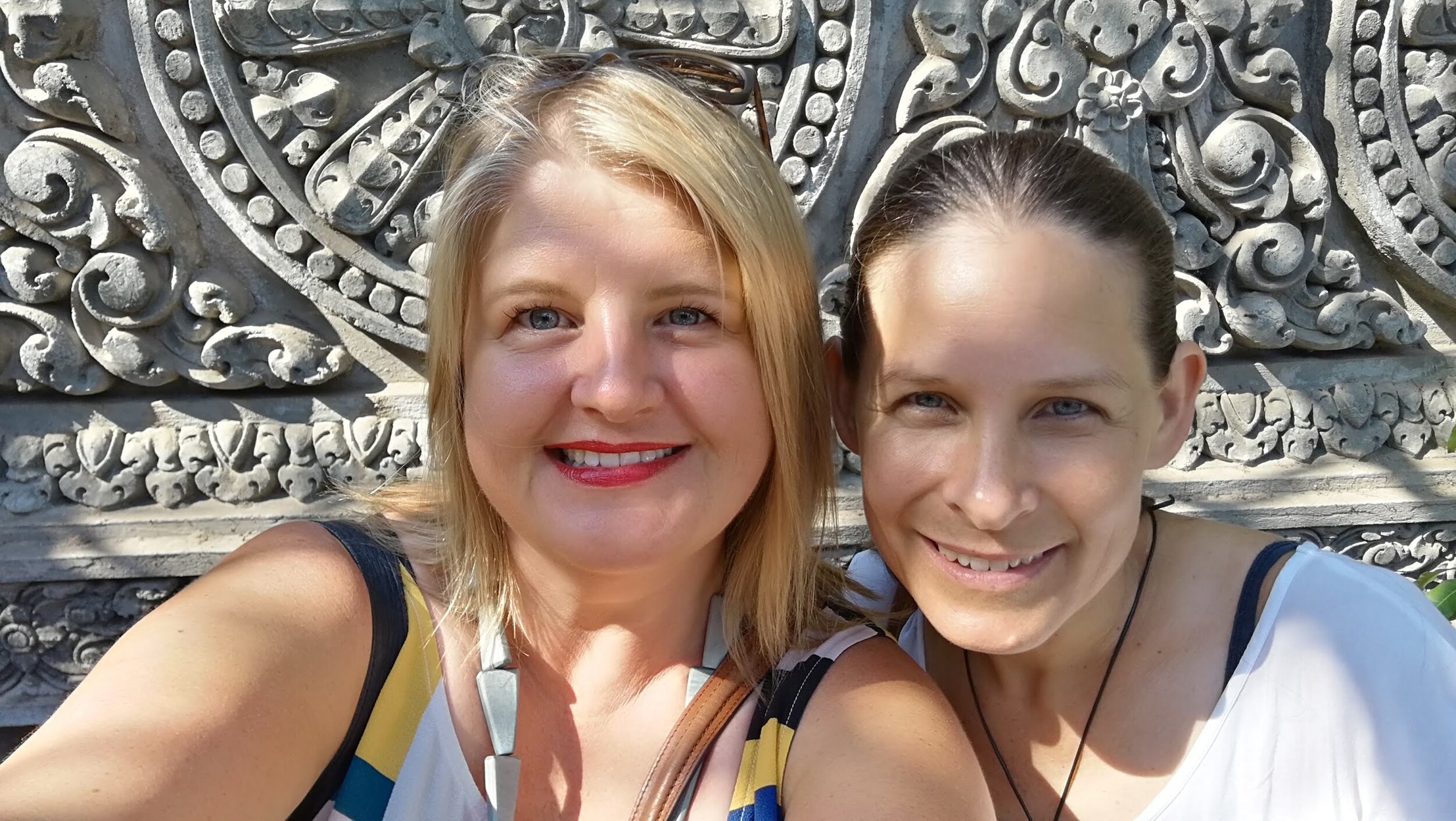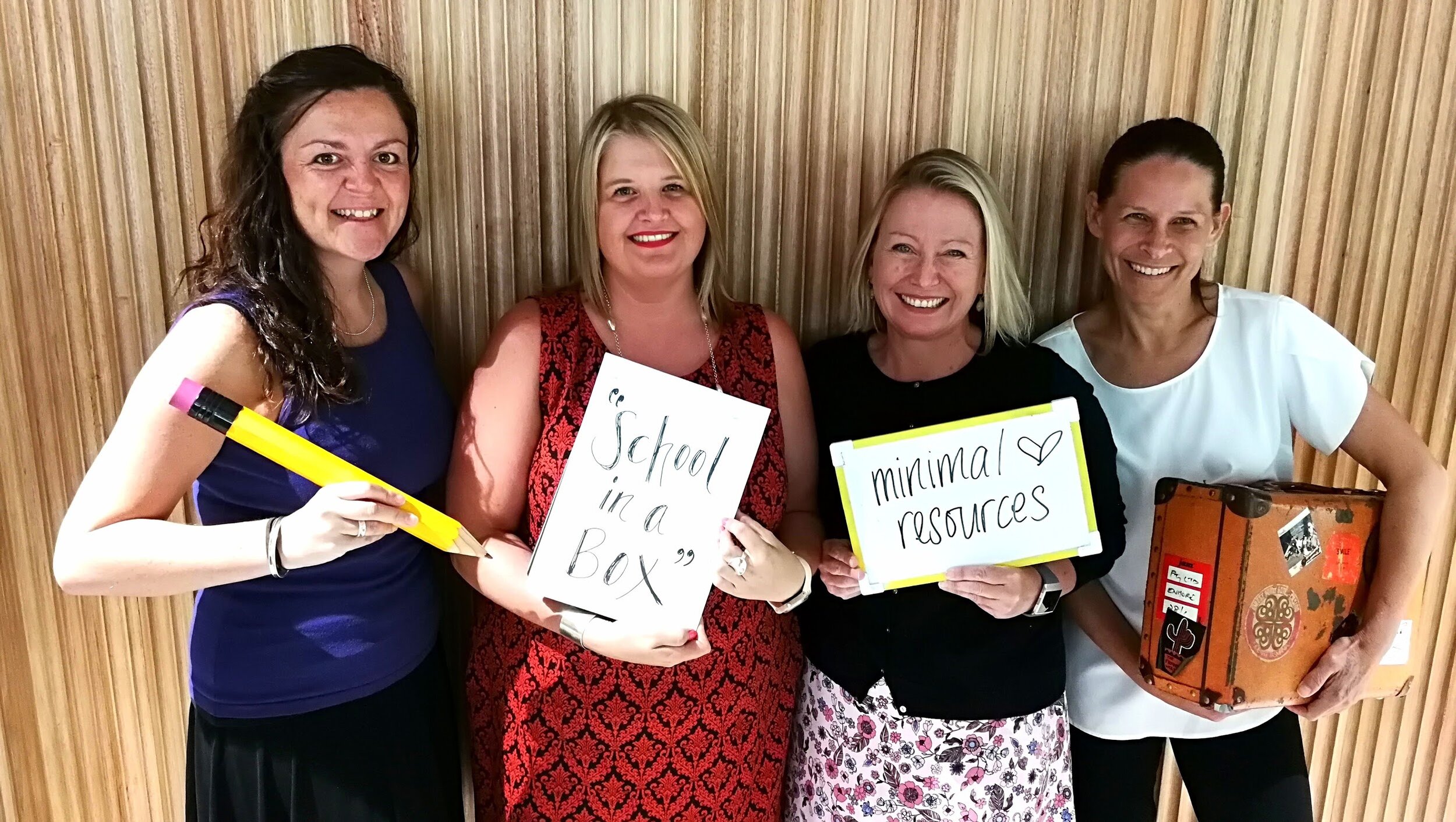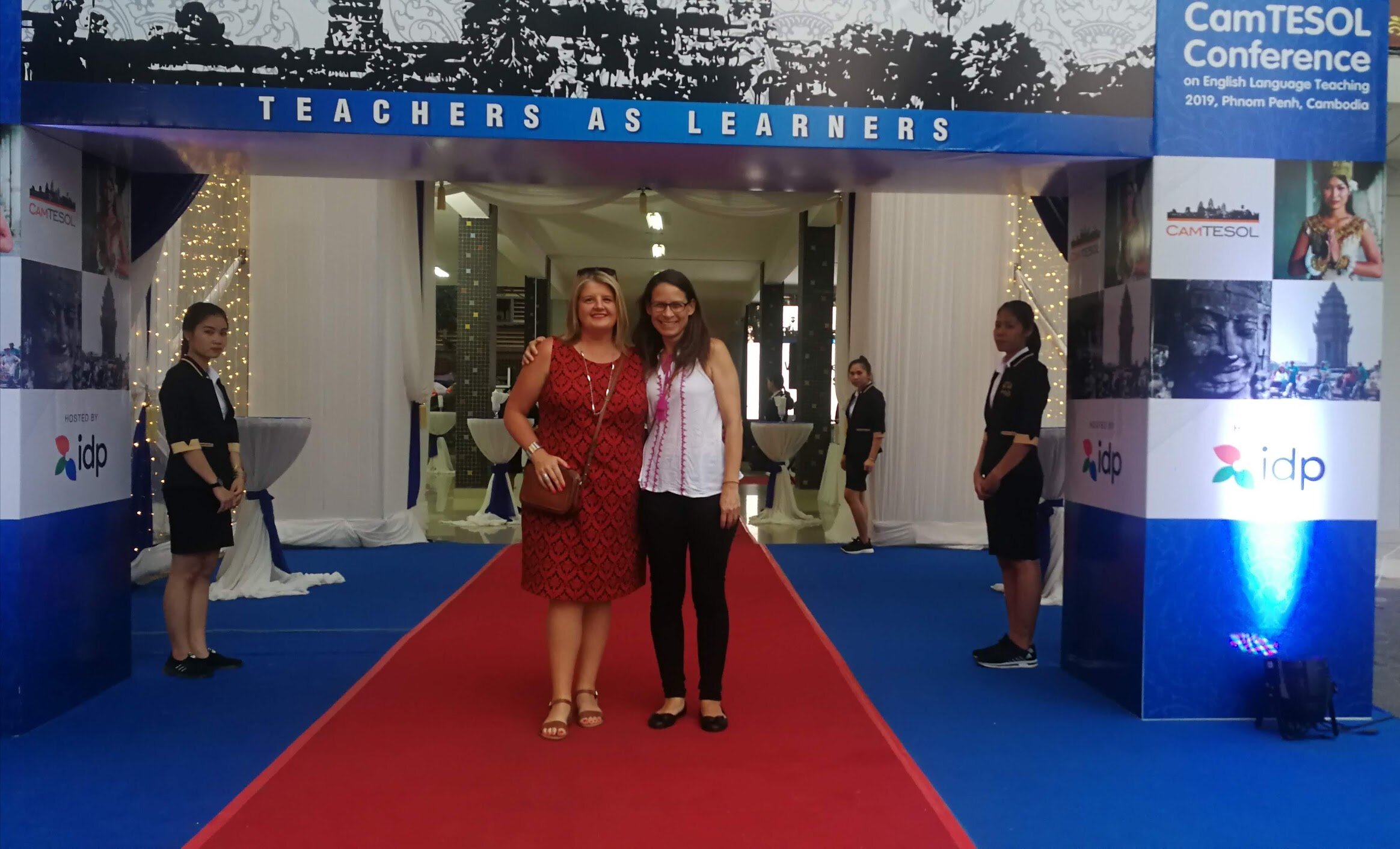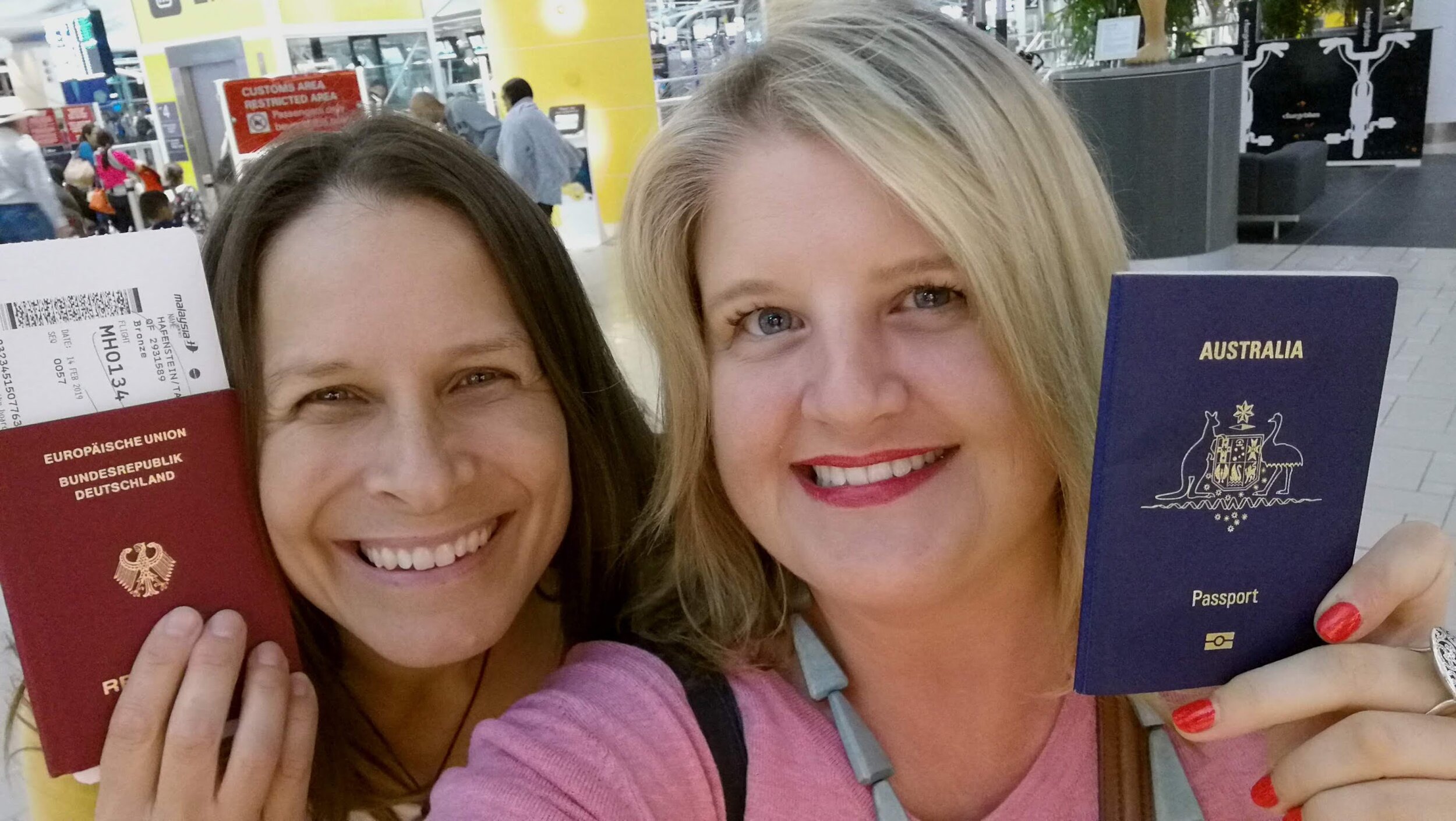‘School in a box’ Minimal-resource teaching in Cambodia
29 March 2019 I Author: Tanja Hafenstein
CamTESOL Conference: Minimal-resource activities for maximum learner engagement.









It is not hard to see why Cambodia is sometimes referred to as ‘Smiling Cambodia’.
Presenting at the 15th International Conference on English Language Teaching in Cambodia (CamTESOL), my co-presenter, Fiona Wiebusch, and I were greeted with a rolling red carpet and an entrance full of smiling faces. Over 1,700 delegates from 30 countries[1] attended the conference held in Phnom Penh at the Institute of Technology of Cambodia.
The CamTESOL welcome ceremony was beautifully draped in elegance and touches of traditional music and dance which transported conference delegates to an ancient tranquillity and happiness. It was also great to see some regular faces of conferences past, and connect with new ones over the well-catered welcome function.
The theme for this year’s conference was Teachers as Learners and delegates certainly had a plethora of workshops to feast their English Language Teachers (ELT) hearts on: from Growth Mindset (with Ediri Anderson) and Extensive Reading (with Rob Waring) to Authentic Materials (with Socheata Somchan & Chan Narith Keuk), Motivating Students (with Ricardo Ribeiro) and Empowering Learners (with Adrian Tennant).
Conference Speakers
However, the highlights of the conference for us included plenary speakers, Joe McVeigh and Professor Anne Burns, an engaging talk by Professor Marc Helgesen and connecting with ELT author and Teacher Trainer, Anna Hasper.
Plenary speaker, Joe McVeigh from the U.S.A, captured his audience with a powerful presentation on ‘Looking In, Looking Out’. His messages about learning from ourselves and others were great reminders about the importance of “connecting and engaging with our students in such a way that their success comes from our commitment to them with our hearts, as well as our heads”.
Anne Burns, Professor of TESOL from the University of New South Wales, emphasised how teachers can extend their professional learning by “developing knowledge for practice, in practice, and of practice[2]” via Action Research. Her examples from teachers conducting action research to affect positive change in their classrooms were particularly inspiring.
Professor Marc Helgesen shared language learning strategies we can use in the classroom to foster happy students in the class which, according to the science of happiness (TIME magazine), create more successful learners in the class. His short language activities are based on positive psychology and can be applied to classroom language learning. Helgesen left us with great links to his activities. His newsletter (JALT Mind/Brain/Education SIG: Think Tank) is also full of articles to inspire positive learning and empower teachers with current and informative sources for ELT and education.
Minimal-resource activities for maximum learner engagement
Fiona and I were also privileged to present at the conference on behalf of our “School in a Box” collaborative project with ICTE teachers, Laura Fairbrother and Jessica Florent. Our presentation, “School in a Box”: Minimal-resource activities for maximum learner engagement, was originally inspired by UNICEF’s School in a Box initiative which aims to provide education to children in crisis using only one suitcase of materials. This got us thinking. What are the tools that every English language teacher needs in their teaching toolbox? How can teachers make the most of language input and output, when resources are limited?
Our featured one-hour workshop allowed us to respond to these questions by demonstrating activities to encourage active language learning in limited-resource classrooms. We were delighted to have an engaged audience of Cambodian and international teachers, many of whom commented on the usefulness of the activities for their own teaching context. You too can access all the activities via our workshop Padlet.
Conference connections
One exciting connection we made through our workshop was with ELT author and Teacher Trainer, Anna Hasper, who was keen to try our activities with her Syrian refugee children. Anna presented at CamTESOL on teaching young learners (YL) and recently produced an online course for ELT Campus focusing on best practice in teaching YLs. Her work on ‘storytelling’ particularly resonated with us and we are continuing our conversations about teaching in limited-resource environments.
The 15th International CamTESOL conference provided a wonderful learning and teaching opportunity for Fiona and myself. We definitely walked away with ‘smiles’ on our faces and a greater connection to the Cambodian and international ELT teaching community.
References
[1]CamTESOL.org/PastConferences/2019
[1] Cochran-Smith, M., & Lytle, S. (1999). Relationships of Knowledge and Practice: Teacher Learning in Communities. Review of Research in Education, 24, 249-305. Retrieved from http://www.jstor.org/stable/1167272
Disclaimer
This post originally appeared on the Institute of Continuing & TESOL Education website, 29 March, 2019. Reposted with permission from the author.
Never miss a story.
Connect with QI below:



